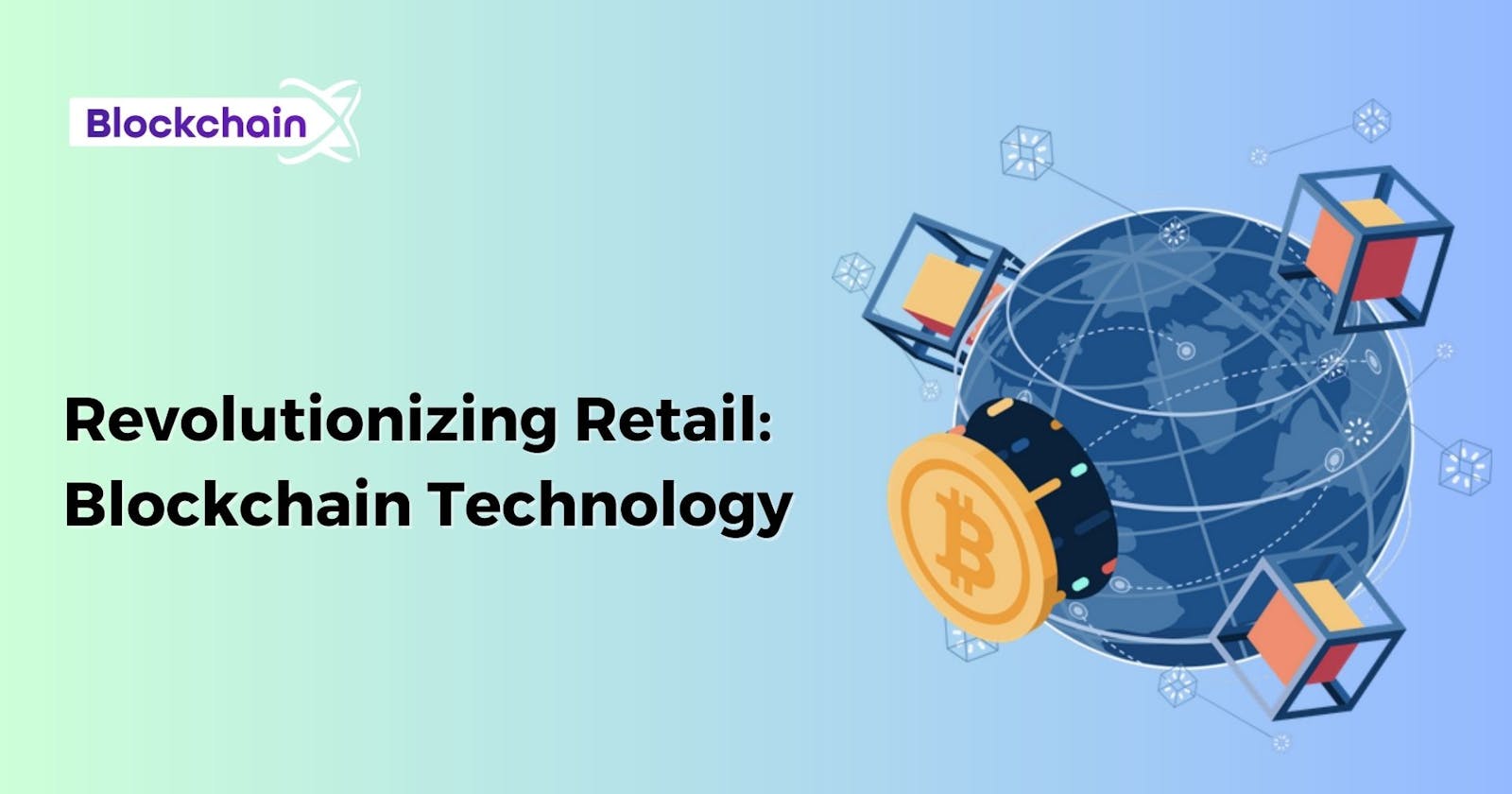Introduction :
The retail industry is undergoing a transformative phase, fueled by advancements in technology. One such innovation that is making waves across various sectors, including retail, is blockchain technology. Originally introduced as the underlying technology for cryptocurrencies, blockchain has evolved to offer numerous benefits for the retail industry. In this article, we will explore the potential of blockchain technology in revolutionizing retail operations, enhancing transparency, improving supply chain management, enabling seamless transactions, and empowering customer loyalty.
I. Enhancing Transparency :
Blockchain technology in retail holds immense potential to enhance transparency within the retail sector. By providing a decentralized and immutable ledger, blockchain enables retailers to record and track every transaction, from product origin to final sale. This transparency ensures that consumers can trace the entire journey of a product, verifying its authenticity and ethical sourcing. Moreover, blockchain can facilitate the sharing of information between retailers and customers, allowing access to product details, certifications, and reviews. Such transparency fosters trust, helping retailers build stronger relationships with their customer base.
Blockchain technology has the potential to significantly enhance transparency within the retail industry. Transparency is a crucial element in building trust between retailers and consumers, and blockchain offers a decentralized and immutable ledger that can revolutionize information sharing and tracking.
One of the key ways blockchain enhances transparency is through the recording and tracking of transactions. Every transaction conducted on a blockchain is recorded in a decentralized ledger, which is visible to all participants. This means that every step of a product's journey, from its origin to its final sale, can be traced and verified by both retailers and consumers. This transparency ensures that consumers can have confidence in the authenticity and ethical sourcing of the products they purchase.
Moreover, blockchain can facilitate the sharing of information between retailers and customers. Retailers can upload product details, certifications, and reviews onto the blockchain, allowing consumers to access this information easily. This direct access to information empowers consumers to make more informed purchasing decisions, as they can verify the claims made by retailers and assess the quality and value of products.
II. Improving Supply Chain Management :
The retail industry heavily relies on complex and fragmented supply chains, making it challenging to track and verify the movement of goods. Blockchain technology offers a revolutionary solution to streamline supply chain management processes. With blockchain, retailers can create a decentralized system that records every step of the supply chain, including product origin, manufacturing, transportation, and distribution. This creates a permanent and tamper-proof record, ensuring authenticity, reducing fraud, and preventing counterfeit products from entering the market.
Additionally, smart contracts, a feature of blockchain technology, can automate and enforce terms and conditions between retailers, suppliers, and logistics partners. This automation eliminates manual processes, reduces paperwork, and enhances efficiency, ultimately resulting in cost savings for all parties involved.
III. Enabling Seamless Transactions
Traditional payment methods in retail often suffer from inefficiencies, high transaction fees, and delays. Blockchain technology can revolutionize the retail payment landscape by enabling seamless and secure transactions. Cryptocurrencies, built on blockchain, offer fast, borderless, and low-cost payment options. With blockchain-based payment systems, retailers can bypass intermediaries, such as banks, reducing transaction costs and settlement times. Additionally, blockchain technology can facilitate peer-to-peer transactions, allowing customers to transact directly with retailers without the need for traditional payment processors.
IV. Empowering Customer Loyalty :
Customer loyalty is vital for the success of any retail business. Blockchain technology can play a significant role in fostering customer loyalty through enhanced reward programs and personalized experiences. By leveraging blockchain, retailers can create decentralized loyalty programs that provide transparent, secure, and instantly redeemable rewards. Blockchain-based loyalty programs enable customers to accumulate loyalty points that cannot be manipulated, ensuring fairness and trust.
Moreover, retail blockchain can enable the secure storage and management of customer data. Customers can have control over their personal information and choose to share it with retailers, enhancing data privacy and security. Retailers can leverage this data to deliver personalized experiences, tailored product recommendations, and targeted marketing campaigns, further strengthening customer loyalty.
Conclusion :
Blockchain technology is poised to revolutionize the retail industry, offering enhanced transparency, streamlined supply chain management, seamless transactions, and empowered customer loyalty. As retailers embrace blockchain solutions, they will gain a competitive edge by building trust, improving operational efficiency, and delivering personalized experiences to their customers. While challenges such as scalability and regulatory concerns still exist, the potential of blockchain in retail is undeniable. As we move forward, it is crucial for retailers to explore and adopt blockchain technology to stay ahead in this rapidly evolving landscape and harness the full power of blockchain for their business growth and customer satisfaction.
